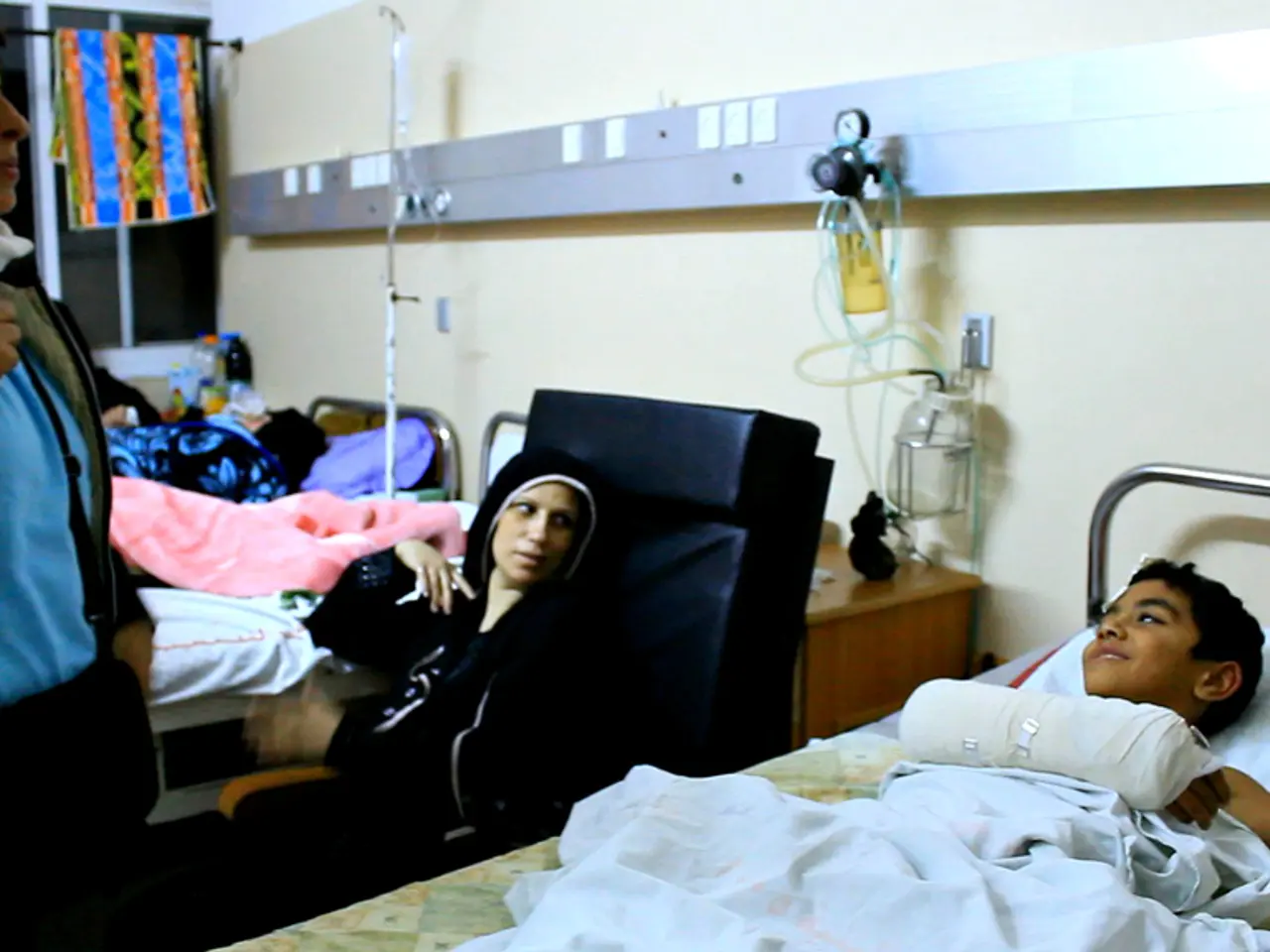Incremental recovery process resumes
The nursing budget in German hospitals is set for a phase-out, marking a significant shift in the financing model aimed at addressing the growing nursing staff shortage and evolving healthcare demands. This change reflects a move away from the current budget system that allocates fixed funds for nursing costs, towards a model that better supports recruitment, retention, and quality care.
Over the past few decades, the number of cases treated in hospitals has fluctuated, with a peak of 19.4 million in 2019, but has since decreased to about 17 million and remains relatively stable since 2020. The nursing effort, however, can vary greatly due to additional diseases in older patients, which is already reflected in the category of casemix.
The nursing budget, introduced to address the nursing crisis, has risen from €14.6 billion in 2020 to €22 billion in 2024. However, many critics argue that the only way to prevent nursing costs from being used to smooth out economic problems is by establishing a realistic staffing basis as the basis for nursing effort.
The current hospital reform aims to weaken the mechanism of case-based payments and supplement it with flat-rate payments. This move is expected to improve working conditions and reduce burnout by addressing staff shortages more effectively. The introduction of diagnosis-related groups (DRGs) in 2003 led to a decrease in the number of nursing staff, as hospitals were pressured to save costs while processing as many cases as possible.
The phase-out of the nursing budget could lead to changes in how nurses are employed and compensated. It might enable hospitals to align funding more directly with actual nursing care delivery, potentially improving working conditions and reducing burnout. Reliable working hours and needs-based staffing could motivate part-time nursing staff and career leavers to increase their working hours or return to work.
The German Nursing Council, echoing the sentiments of many, stated, "Fair wages and more staff are not a luxury." The Council also raised concerns about wear and tear care, referring to the impact of understaffing on nursing professionals. Economist Boris Augurzky suggests that the nursing budget should be phased out as soon as possible, as hospitals have seen an increase in staff and nursing costs have risen significantly.
The Krankenhaus-Rating-Report, a business-oriented approach, states that productivity has "significantly decreased" in hospitals between 2019 and 2023, with a 13.5% increase in the number of nursing staff over the five years. Previous attempts to generate as much performance as possible with as little staff as possible have led to staff leaving the profession. The Association of Democratic Doctors proposes financing all hospital staff according to the cost-covering principle.
Germany expects a shortage of about 500,000 nurses by 2030, driving a need for new strategies in staffing and budget allocation. The phase-out of the nursing budget is part of broader health system reforms aiming to tailor hospital funding — including nursing costs — to actual service provision rather than fixed budgets, which can be rigid and outdated.
In summary, the nursing budget phase-out in German hospitals is motivated by the critical nursing shortage and the need for a more effective financing model that supports adequate staffing and high-quality patient care. This change has significant implications for nursing staff employment and patient outcomes, as it may facilitate more responsive and sustainable hospital funding mechanisms.
For those interested in staying updated on the latest developments in this area, a daily newsletter, nd.Kompakt, provides an overview of the most interesting stories from the editorial team. Subscription is free.
[1] German Nursing Council. (2022). Nursing Shortage in Germany: Current State and Future Prospects. Retrieved from https://www.bundesverband-pflege.de/de/nachrichten/3118-pflegekrise-in-deutschland-aktueller-stand-und-perspektiven [4] World Health Organization. (2020). Health Workforce Planning, Development and Management: A Policy Guide for the 21st Century. Retrieved from https://www.who.int/publications/i/item/9789240015554 [5] German Federal Ministry of Health. (2022). Hospital Reform: A New Approach to Hospital Funding. Retrieved from https://www.bundesgesundheitsministerium.de/blob/2381142/09e8b2e074c49e4c0245a865866a2a77/hospitalreform-neue-ansaetze-fuer-spitalfinanzierung_broschuere_2022.pdf
- The phase-out of the nursing budget in German hospitals signifies a transition towards a financing model that aligns funding more closely with nursing care delivery, potentially leading to improved mental health, workplace wellness, fitness, and exercise among nursing staff due to better working conditions.
- As the nursing budget is phased out, it is hoped that hospitals will adopt a realistic staffing basis, thereby improving retention rates, reducing mental health issues arising from burnout, and promoting overall health and wellness among nursing staff.
- The shift in hospital funding models, away from fixed budgets and towards a model based on service provision, could lead to improvements in nutrition for patients, as hospitals have the potential to allocate more resources to food services when funding is directly linked to actual care delivery.
- The new hospital funding model, which aims to address the nursing staff shortage and evolving healthcare demands, may also pave the way for better integration of therapies and treatments, enhancing patient care and outcomes in terms of mental health and physical health.




